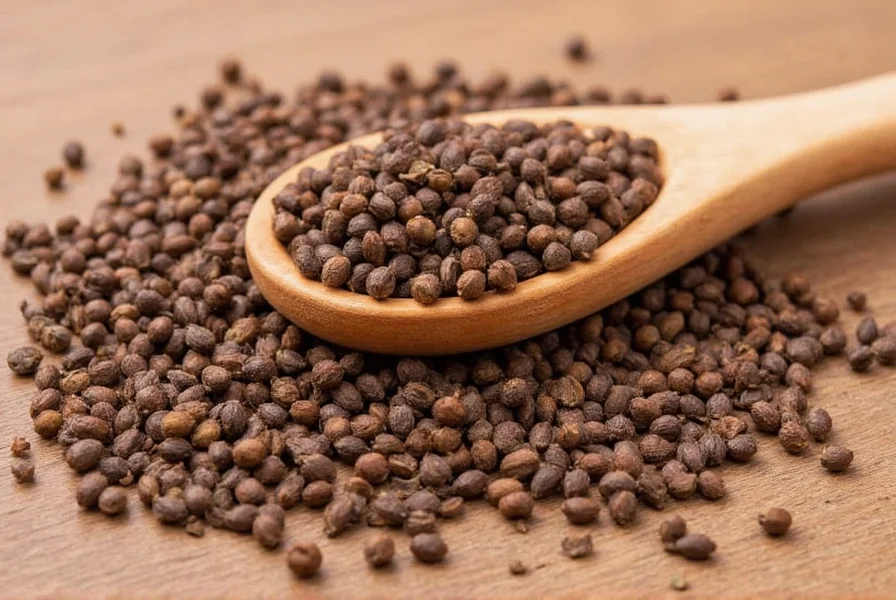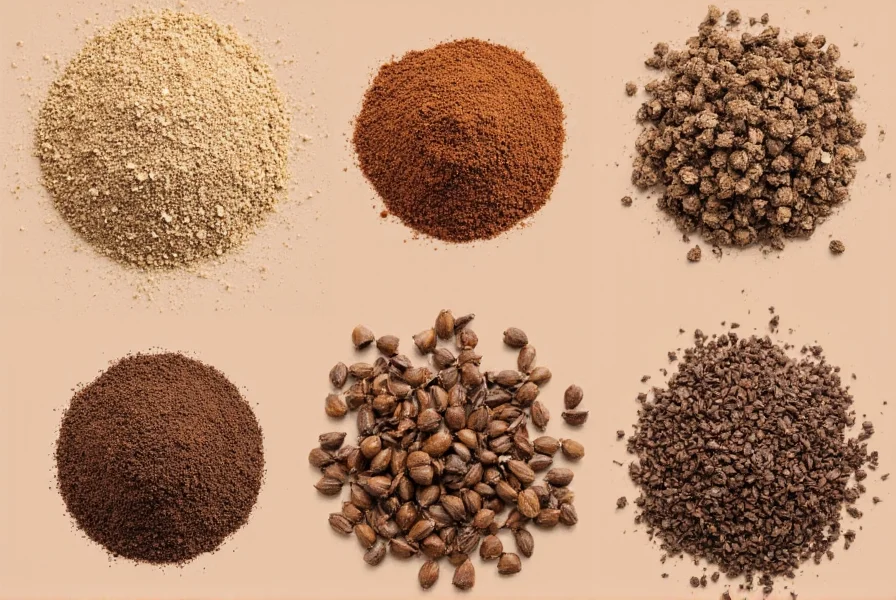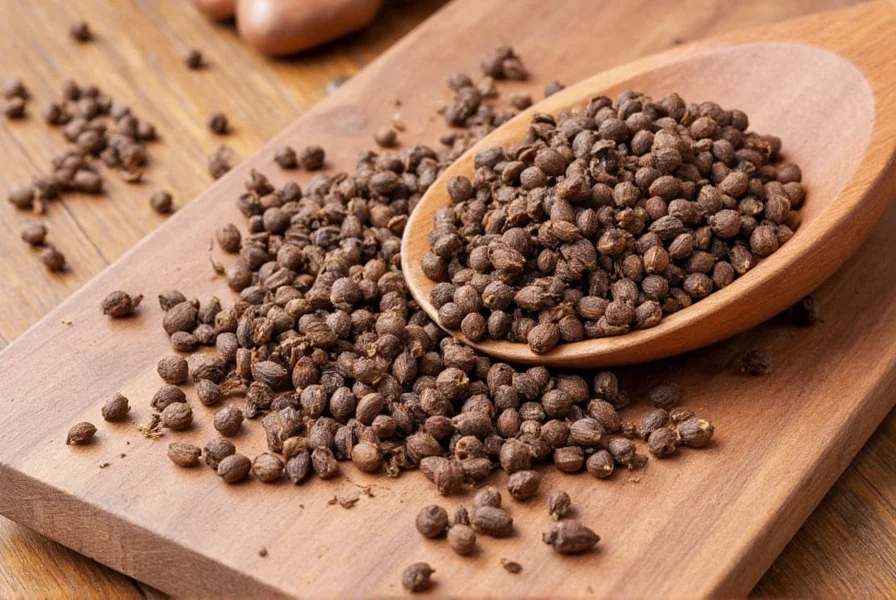When you're in the middle of preparing a recipe and realize you've run out of ground cloves, knowing reliable alternatives can save your dish. Ground cloves have a distinctive warm, sweet, and slightly peppery flavor with aromatic notes that are difficult to replicate exactly, but several common spices can effectively stand in when needed.
Understanding Ground Cloves and Their Unique Flavor Profile
Ground cloves come from the dried flower buds of the Syzygium aromaticum tree and contain eugenol, which gives them their characteristic pungent, warm, and slightly bitter-sweet flavor. They're commonly used in baking, spice blends, mulled beverages, and various global cuisines from Indian to Middle Eastern. When substituting, consider that cloves have both sweet and savory applications, so your replacement should match your recipe's context.

Top 7 Substitutes for Ground Cloves
1. Allspice: The Closest Flavor Match
Allspice combines flavors reminiscent of cloves, cinnamon, and nutmeg, making it the most direct substitute. It works particularly well in baking, marinades, and pickling recipes.
Substitution ratio: Use 3/4 teaspoon allspice for every 1 teaspoon of ground cloves. Allspice has a slightly milder flavor, so you may need to adjust to taste.
2. Cinnamon: The Accessible Alternative
Cinnamon provides the warm, sweet notes of cloves without the peppery bite. It's ideal for baked goods, oatmeal, and fruit dishes where cloves would normally be used.
Substitution ratio: Substitute cinnamon for cloves at a 1:1 ratio, but be aware it lacks the distinctive clove aroma. For closer approximation, combine with a pinch of nutmeg.
3. Nutmeg: The Warm Companion
Nutmeg shares some of cloves' warm characteristics but is less intense. It works well in creamy dishes, custards, and some baked goods.
Substitution ratio: Use 1/2 teaspoon nutmeg plus 1/2 teaspoon cinnamon to replace 1 teaspoon of ground cloves. Nutmeg alone would require doubling, which might overpower your dish.
4. Cardamom: The Savory Option
Cardamom offers a complex flavor profile with citrus and herbal notes that can complement dishes where cloves would typically appear in savory applications.
Substitution ratio: Replace 1 teaspoon ground cloves with 3/4 teaspoon ground cardamom. Best for curries, rice dishes, and some Middle Eastern recipes.
5. Mace: The Delicate Alternative
Mace comes from the same plant as nutmeg and has a more delicate flavor profile that includes some clove-like notes without overwhelming heat.
Substitution ratio: Use mace at a 1:1 ratio for cloves in delicate sauces, custards, or light-colored baked goods where cloves might discolor the final product.
6. Pre-Mixed Spice Blends
Pumpkin pie spice and apple pie spice both contain cloves among other warming spices, making them convenient substitutes when you need that holiday baking flavor.
| Spice Blend | Best For | Substitution Ratio |
|---|---|---|
| Pumpkin Pie Spice | Baking, pumpkin recipes | 1:1 replacement |
| Apple Pie Spice | Fruit desserts, compotes | 1:1 replacement |
| Chinese Five-Spice | Asian-inspired savory dishes | 3/4:1 ratio |
7. Clove Oil: Use With Extreme Caution
Clove oil provides intense clove flavor but is highly concentrated. Only use when no other options are available and you need authentic clove flavor.
Substitution ratio: 1 drop of clove oil equals approximately 1/4 teaspoon ground cloves. Always dilute in another liquid ingredient first.
Recipe-Specific Substitution Recommendations
The best substitute for ground cloves depends heavily on your specific recipe. Understanding what role cloves play in your dish will help you choose the most appropriate alternative:
For Baking and Desserts
In gingerbread, spice cakes, and other baked goods, cloves provide depth and warmth. Your best options are:
- Pumpkin pie spice as a 1:1 replacement in fall baking
- Allspice and cinnamon blend (3/4 tsp allspice + 1/4 tsp cinnamon per tsp cloves)
- Nutmeg alone at half the amount of cloves called for
For Savory Dishes
In curries, stews, and braises, cloves add complexity without overwhelming. Try:
- Cardamom as the primary substitute in Indian and Middle Eastern dishes
- Star anise (use 1 star equals 1/4 tsp ground cloves) in Chinese and Vietnamese cuisine
- Bay leaves (remove before serving) for slow-cooked dishes
For Beverages
In mulled wine, chai, or spiced cider, cloves provide aromatic warmth:
- Cinnamon sticks as the primary substitute (simmer 1 stick per 2 cups liquid)
- Whole allspice berries (6-8 berries per recipe)
- Orange zest plus cinnamon for citrus-spice notes
Common Substitution Mistakes to Avoid
When searching for what to use instead of ground cloves, avoid these common pitfalls that home cooks encounter:
- Over-substituting - Many substitutes are more potent than cloves, so start with less and adjust
- Ignoring recipe context - Don't use cardamom in pumpkin pie or pumpkin spice in curry
- Using liquid smoke - Despite some online suggestions, this creates entirely different flavor profiles
- Substituting whole cloves for ground - They're not interchangeable by volume (1 whole clove ≈ 1/4 tsp ground)
Preserving Your Ground Cloves to Avoid Substitution Needs
The best substitute for ground cloves is having ground cloves available when you need them. Proper storage extends their potency:
- Store in an airtight container away from light and heat
- Keep whole cloves instead of ground for longer shelf life (up to 4 years)
- Grind cloves just before use for maximum flavor impact
- Test potency by crushing a small amount - strong aroma indicates freshness
Ground cloves typically maintain peak flavor for 6-12 months, while whole cloves can remain potent for several years when stored properly. If your cloves have lost their strong, distinctive aroma, it's time to replace them rather than rely on substitutes.

Final Considerations for Clove Substitution Success
When determining the best substitute for ground cloves in your specific recipe, consider these factors:
- Flavor balance - Cloves are potent, so most substitutes should be used at slightly reduced quantities
- Cultural authenticity - Some traditional recipes rely on cloves for specific flavor profiles that substitutes can't fully replicate
- Visual impact - Ground cloves darken dishes; cinnamon may provide similar color
- Timing of addition - Some substitutes (like nutmeg) benefit from being added later in cooking
Remember that the goal of substitution isn't perfect replication but creating a delicious dish despite ingredient limitations. Most home cooks and even professional chefs keep a well-stocked spice cabinet specifically to handle these common kitchen emergencies.











 浙公网安备
33010002000092号
浙公网安备
33010002000092号 浙B2-20120091-4
浙B2-20120091-4